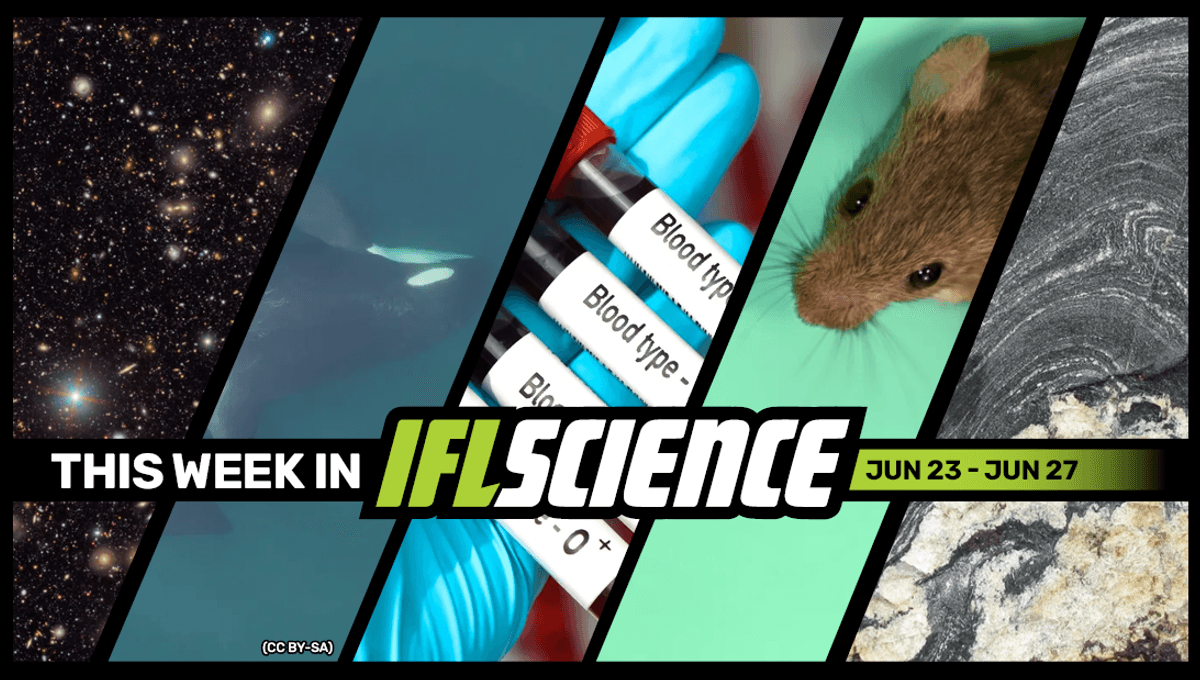-
Ροή Δημοσιεύσεων
- ΑΝΑΚΆΛΥΨΕ
-
Σελίδες
-
Blogs
-
Forum
World’s Largest Digital Camera Snaps 2,104 New Asteroids In 10 Hours, Mice With 2 Dads Father Their Own Offspring, And Much More This Week

World’s Largest Digital Camera Snaps 2,104 New Asteroids In 10 Hours, Mice With 2 Dads Father Their Own Offspring, And Much More This Week
This week, a hot new wellness trend for orcas showcases their impressive use of tools, there’s only one person in the world with this blood type, and Canada claim to host rocks that date back to the Hadean Eon, making them strong favorites to be the oldest rocks on Earth. Finally, to mark 50 Years of the European Space Agency, we spoke with one of its brilliant astronauts, Luca Parmitano.
Welcome to a new era in visual astronomy, as the Vera C. Rubin Observatory releases its first incredible images. The revolutionary telescope has the largest digital camera in the world, and with these stunning first pictures and now videos, you can tell. Read the full story here Animals using tools is always a pretty cool facet of their behavior, from monkeys cracking nuts to elephants sabotaging their mates' showers. Now, thanks to some pretty nifty drone footage, researchers have revealed a new kind of tool use in orcas, and it might just be the latest wellness trend to take over. Read the full story here An incredibly rare genetic mutation has given rise to a brand new blood type, which is currently thought to exist in just one person. Known as “Gwada negative”, the exceptional blood group was identified earlier this month in a French woman from the island of Guadeloupe, solving a mystery that had puzzled doctors since 2011, when they first spotted an unusual antibody in the patient’s plasma. Read the full story here In a world first, scientists have created mice with two fathers, capable of having offspring of their own. It’s a huge step forward for our understanding of mammalian reproduction, and could, in theory, have implications for us humans – though this is still a long way off becoming reality. Read the full story here Not quite a gateway to hell, but northern Canada has a gateway to the Hadean Eon, named after the Greek God of Hell. A more detailed investigation of the Nuvvuagittuq Greenstone Belt has strengthened Canada’s claim to host rocks that date back to the Hadean Eon. This would make them strong favorites to be the oldest rocks on Earth. Read the full story here Exclusive: Space influences our daily lives, whether we like it or not. From weather forecasting to GPS, it wouldn’t be easy (or safe) to live in the modern world without it. Communicating the importance of what goes on above our heads is not always easy. In this exclusive interview, we discuss this with someone who has experienced life in space and shown Earthlings what that looks like: European Space Agency astronaut Luca Parmitano. Read the full story here Have you seen our e-magazine, CURIOUS? Issue 35, June, 2025, is available now. This month we asked, “Are There Colors That Only Exist In Our Brains?” – check it out for exclusive interviews, book excerpts, long reads, and more. PLUS, the We Have Questions podcast – an audio version of our coveted CURIOUS e-magazine column – continues. In episode 8, we ask, “Why Does Snow Sometimes Look Blue?” The Big Questions podcast has returned, and we’re kicking off season 5 with the big question: Would You Rather Go To Space Or The Bottom Of The Sea?Create an IFLScience account to get all the biggest science news delivered straight to your inbox every Wednesday and Saturday.
World’s Largest Digital Camera Snaps 2,104 New Asteroids And Millions Of Galaxies Within A Few Hours
"Allokelping": Hot New Wellness Trend For Critically Endangered Orcas Showcases Impressive Tool Use
There’s Only One Person In The World With This Blood Type
World First: Mice With 2 Dads Father Their Own Offspring
New Claim For World's Oldest Rocks Dates Back A Whopping 4.16 Billion Years
TWIS is published weekly on our Linkedin page, join us there for even more content.
Feature of the week:
Space Selfies & DJing A Party From Orbit – How Astronaut Luca Parmitano Brought Space To Earth
More content:


